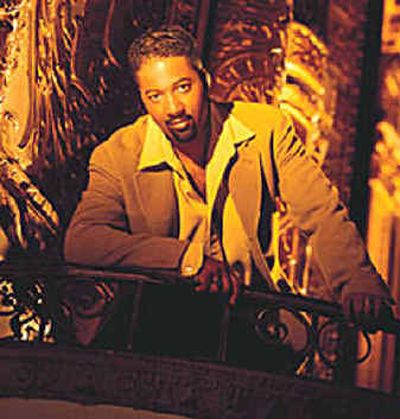Jazz pianist Eric Reed an industry rising star

Renowned pianist Eric Reed spent two years touring with Wynton Marsalis and the Lincoln Center Jazz Orchestra during the late 1990s.
That doesn’t mean he had to like it.
“Playing with a big band wasn’t an ideal experience for me because there is so much emphasis on the horns,” Reed said during a telephone interview. “I enjoyed the challenge of creating my own role. I tried to get space where I could.
“And, really, I was trying not to be bored. That’s why I prefer smaller ensembles.”
Since then Reed has carved out his own space as one of the top young pianists in jazz music. He brings his hard-driving swing, daring expression and sophisticated elegance to Whitworth College’s Cowles Auditorium on Saturday at 8 p.m.
Playing a variety of jazz-band tunes – including Basie-style swing, fast swing, ballads and Latin styles – Reed will be accompanied by the award-winning Whitworth College Jazz Ensemble.
One of the highlights of the evening will be an improvisational piano duet featuring Reed and Whitworth senior jazz pianist Erik Hjelt. A quick conversation beforehand is all the rehearsal Reed and Hjelt will get.
“We’ll get together and talk about what we’re going to play, who will solo first, who will walk the bass lines – just the basic stuff to make sure there are no train wrecks on stage,” Reed said.
The piano duels are a mainstay for Reed’s concerts. He’s been performing them since before he was a teenager.
“The train wrecks happen all the time,” he said. “The trick is to make sure the audience can’t tell.”
A child prodigy, Reed started playing piano as a toddler and began formal instruction at age 7, but he remains largely self-taught. He learned to play by ear, listening to his teachers and memorizing what he heard note-for-note. By age 11, Reed had frustrated most of his instructors with his rejection of classical music until he found a teacher who fed him jazz.
“I wasn’t interested in Bach at the time; I was checking out Horace Silver,” Reed said. “It’s about exposure and what you’re interested in doing. Now I recognize there are things in classical music that can allow you to be a better instrumentalist, but practice is practice.”
Reed first performed for Marsalis at age 15 and later was invited to tour with the jazz master. He eventually launched his own career, leading groups and working in bands with Teddy Edwards, Gerald Wilson and John Clayton.
Many of the dozen albums Reed has recorded intertwine his gospel upbringing with his passion for traditional jazz.
“Gospel is in my subconsciousness because it’s what I learned as a young man,” Reed said. “But I also am conscious to let people know where I’m coming from, musically and spiritually.”